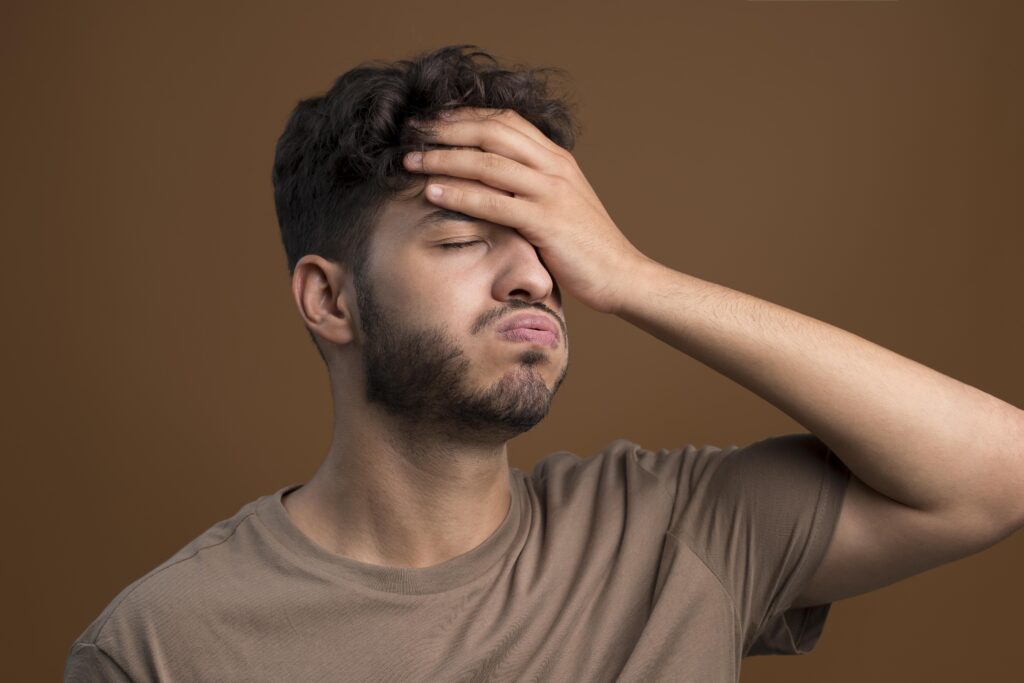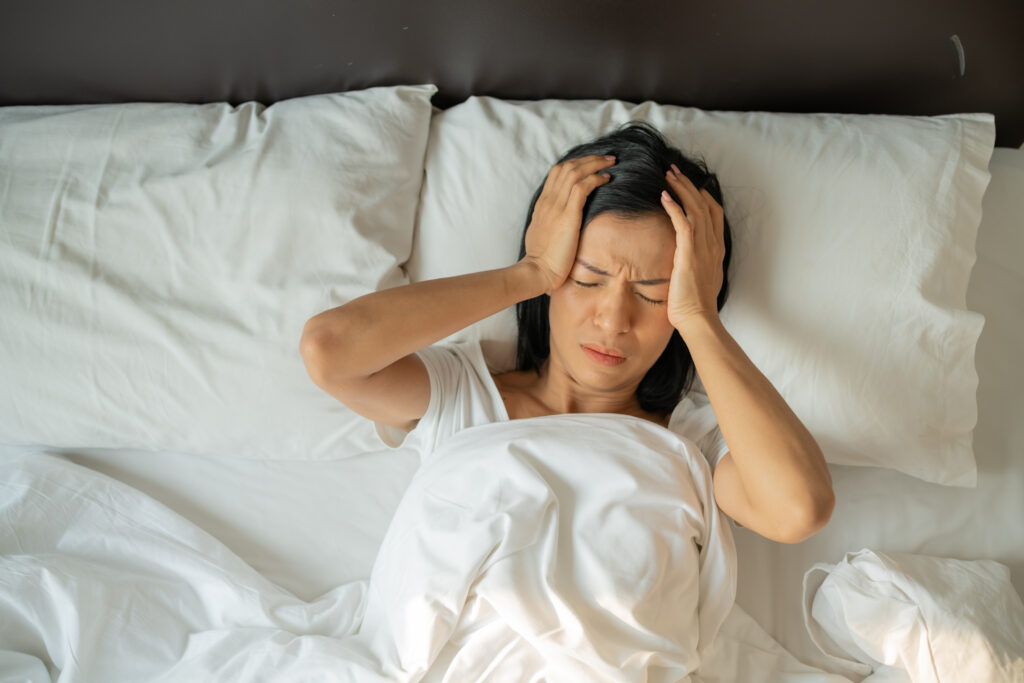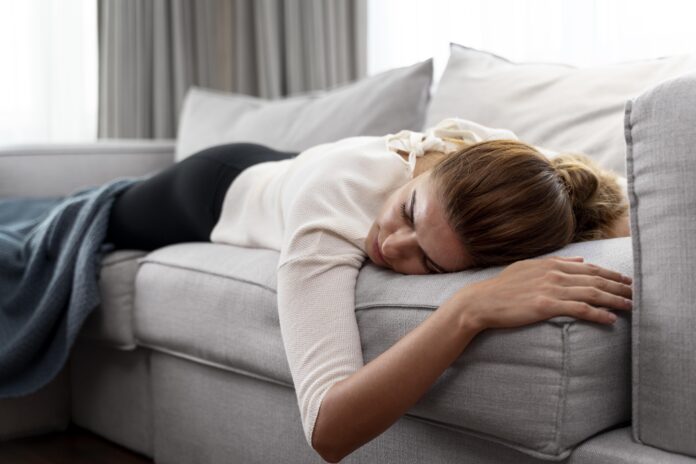Do you ever feel extreme daytime sleepiness despite getting sleep that should be adequate? Feeling sleepiness more than sufficient in the daytime is a condition called Hypersomnia. If you fall asleep several times during the day, this is an indication that you have Hypersomnia. Hypersomnia disturbs your cognitive abilities and your functioning at work. It also affects your quality of life and increases the risk of accidents.
Whom Does Hypersomnia Affect?
This disorder usually affects females more than males. As estimated, this condition affects more than 10% of the population in the country. Most young adults and adolescent people are affected by Hypersomnia including ages 18 to 25 years.
Causes and Symptoms of Hypersomnia
What Causes Hypersomnia?
In most of the cases, the causes of hypersomnia remain unknown. According to research, neurotransmitters in the brain and cerebrospinal fluid including orexin or hypocretin, dopamine, gamma-aminobutyric acid (GABA), histamine, and serotonin may have a potential role in inducing such conditions. Researchers also have looked at the possibility of a genetic link because a family history of idiopathic hypersomnia is a clue for the hypersomnia problem in more than 40% of people.
Signs and Symptoms of Hypersomnia
Symptoms of the sleep disorder include:
- Recurrent episodes of strong feelings of sleepiness during daytime.
- Sleeping more than 10 hours. Still feeling sleepy during the day and experiencing difficulty in remaining awake during the day.
- Sleep drunkenness ( difficulty waking up in the morning or after a nap).
- Napping doesn’t improve alertness but it causes tiredness and dizziness.
- Lower energy levels.
- Depression, anxiety, and irritability.
- Frequent hallucinations.
- Inability to focus or concentrate on daily chores.
- Memory loss.
- Loss of appetite.
- Headaches and slow thinking.

Types of Hypersomnia
There are different types of hypersomnia. Different sleep organizations and psychiatric organizations have classified hypersomnia into other categories but this categorization continues due to complicating matters evolving day to day.
The most Accepted Criteria for Classification of Hypersomnia: According to the World Health Organization for Sleep Disorders, the most common accepted criteria for hypersomnia suggest that there are two main types of hypersomnia:
- Primary Hypersomnia.
- Secondary Hypersomnia.
Primary Hypersomnia
Primary hypersomnia refers to a condition that prevails on its own. It isn’t caused by other medical problems but it is caused by itself. Different conditions are classified as primary hypersomnia but four more important categories are discussed here:
Narcolepsy Type 1: This type of hypersomnia is caused by the sudden muscle weakness triggered by emotional attacks. Low levels of cerebrospinal fluid and brain neurotransmitters including hypocretin or orexin also cause narcolepsy. In this condition, the daytime naps are less disturbing or tiring than daytime naps of other forms of hyper-somnolence disorder. Narcolepsy type 1 usually affects people between the ages of 15 to 25. Most of the people affected by this condition often experience sleep paralysis and hallucinations.
Narcolepsy Type 2: This type of narcolepsy doesn’t include the weakness of muscles and has less severe symptoms as compared to narcolepsy type 1. Levels of hypocretin remain normal in this type of hypersomnia. Narcolepsy types usually affect adolescent people.
Kleine-Levin Syndrome: In this condition, the rate of recurring episodes of extreme symptoms of hypersomnia increases up to a higher level. It causes severe psychiatric, mental, and behavioral disturbances. Each episode may last for 15 to 20 days but in severe conditions, some symptoms may last for several weeks or months. These symptoms often recur several times a year. People affected with kleine-levin syndrome usually perform normally and have normal functioning between episodes. Young males are usually affected by the syndrome. People experience a decrease in episodes after 8 to 12 years.
Idiopathic Hypersomnia: Idiopathic hypersomnia means you are feeling extremely sleepy without knowing any reason. Even after taking a sleep of 10 to 12 hours, you still feel sleepiness with no known cause.

Secondary Hypersomnia
Secondary hypersomnia is a sleep disorder that is linked with other known causes. In this condition, your extreme sleepiness is caused by some other medical issues including:
Hypersomnia Due to Medical Issues: Some diseases can cause hypersomnia such as obesity, obstructive sleep apnea, delayed sleep phase syndrome, multiple system atrophy, myotonic dystrophy, epilepsy, hypothyroidism, encephalitis, multiple sclerosis, and Parkinson’s disease. Some genetic disorders also cause hypersomnia. These include bipolar disorder, depression, mood disorders, and seasonal depression. Healthcare specialists have concluded a result after an experiment that in some people hypersomnia was caused by head trauma, central nervous disease, and tumors.
Hypersomnia Due to Alcohol or Medications/Drugs: Medicines like benzodiazepines, barbiturates, and melatonin categorized as sedative drugs can cause a severe type of hypersomnia. These drugs aid sleeping while medications prescribed by doctors treat some other medical problems including anti-hypertensive drugs, skeletal muscle relaxants, opiates, anti-Parkinson’s agents, cannabis, anti-epileptic drugs, alcohol, and anti-psychotics also can cause hypersomnia. In addition to these medications, withdrawal from medications used to treat attention deficit hyperactivity is also a major cause of inducing hypersomnia in people between the ages of 30 to 45 years.
Insufficient Sleep Syndrome: Hypersomnia caused by not getting enough sleep is called insufficient sleep syndrome. This is because you are not going to bed timely or not allowing yourself to sleep for ten hours as an adult. It may be due to not following sleep hygiene or good sleep habits. To treat this type of hypersomnia you must stop using caffeine or taking exercise near bedtime. Because such practices make you alert and disturb your sleep-wake cycle.
Diagnosis and Tests
Diagnosis of Hypersomnia
Whenever you feel hypersomnia, you must see your sleep specialist. Your sleep specialist may ask about your sleep habits, medical history, sleep history, and current medication details. Healthcare providers will suggest you keep track of your sleep and wake patterns using a sleep diary to diagnose the actual cause of hypersomnia. In recent years, sleep specialists have used a small watch-like device that is worn by patients with hypersomnia to track disruption in their sleep-wake cycle over several weeks to months. This antigraphy sensor helps a lot to track the disturbance in circadian rhythm in affected people. Some more tests are also used by your sleep specialists to diagnose the causes of hypersomnia, including:
Polysomnography: Through this method, your brain waves, breathing patterns, heart rhythms, and muscle movement during stages of sleep are studied during your overnight sleep. The test is performed under the supervision of an expert sleep specialist in a hospital or sleep study center. This test has proven helpful in diagnosing sleep disorders believed to cause sleepiness.
Multiple Sleep Latency Test: This test is performed to measure a person’s sleep tendency during daytime. This is scheduled to study the 20-minute nap trials for five times within two to three hours. A person’s brain activity including the number of naps containing REM sleep is recorded during the test.
Sleep Questionnaires: Through this technique, you are asked to complete a few sleep questionnaires to track the rate of your sleepiness. Stanford Sleepiness Scale and Epworth Sleepiness Scale are the most popular sleep questionnaires conducted by expert sleep specialists.
Diagnostic and Statistical Manual of Mental Disorders has recently suggested a diagnostic criteria to diagnose hypersomnia. The criteria include the following techniques. If you experience excessive sleepiness with at least eight hours of constant sleep and have one of these additional symptoms:
- Getting more than nine to ten hours of sleep and still not feeling refreshed and active.
- Lapse into sleep several times within the same day.
- After an abrupt awakening, don’t feel fully awake.
- If you experience hypersomnia at least four to five times a week for at least four to five months.
- If you experience a significant impairment or distress in your mental, social, or working areas of life due to hypersomnia.
Management and Treatment
Treatment of Hypersomnia
The causing agent decides the type of treatment. So the first step is to find out what’s causing your sleep disorder. Then we will be able to suggest whether it can be treated through medication or lifestyle changes will be effective as treatment.
If you have diagnosed a type of hypersomnia that needs medications as a remedy then look to keep on reading. It may be helpful for you.
Medications: At first attempt to treat this sleep disorder, wakefulness-promoting drugs are tried. These medications include pitolisant, armodafinil and modafinil.
Other types of medicines or drugs that can decrease the level of hypersomnia symptoms include dextroamphetamine, methylphenidate, and amphetamine. However, these medicines have more adverse effects on the body and brain than the former.
Sometimes the severity of this sleep disorder reaches a peak level and all the above-mentioned drugs remain unable to treat the condition. Then doctors prescribe the third category of medication in this regard. These medicines include clarithromycin, flumazenil, or oxybate.
It is important to remember that these drugs are highly addictive and have high potency in nature. Their misuse can cause fatal results. Therefore, always speak with your sleep specialist before trying any of these medicines to treat this sleep disorder. Follow up the appointments with your sleep specialist, discuss with them your feelings, and symptoms, and tell them about the results of medications that you are using. In case of any side effects see your doctor and ask him to adjust the dose or switch to another medication if needed.
Changes in Lifestyle to Treat Hypersomnia: Some positive changes in your lifestyle can help treat this sleep disorder. These good habits may be:
- Maintaining good sleep hygiene or habits such as having a peaceful environment for allowing good sleep, scheduling a regular sleep pattern, and establishing some limitations that support your sleep.
- In addition, focus on your room environment, and bedding utility. Use a soft and comfortable bed, blankets, and pillows.
- Limit caffeine and alcohol near bedtime.
- Don’t perform any exercise before bedtime.
Prevention
Preventive Measures for Hypersomnia
Most types of this sleep disorder cannot be treated or prevented because it is a chronic disorder that has no cure at all. So some preventive measures can save you from this condition and promote a fresh awakening in your life pattern. Try to include these in your daily life:
So some preventive measures can save you from this condition and promote a fresh awakening in your life pattern. Try to include these in your daily life:
- Select a time for sleep at night and fix it. Make your bedroom environment fully, aerated, ventilated, dark, quiet, comfortable, and cool. Keep soft and comfortable pillows, bed sheets, and blankets.
- Avoid tea or other caffeinated drinks, chocolates, or any type of over-the-counter drugs three to four hours before bedtime. Because caffeine is a stimulant and makes your circadian rhythm out of control. Alcohol is a depressant and it induces more sleep in your body by metabolizing at a high rate. Thus causes nightmares and night sweating.
- Follow a diet plan suggested by your sleep specialist.
- Nicotine is another stimulant found in tobacco. So avoid tobacco products several hours before bedtime.
- Don’t perform a night shift job.
- Talk to a counselor or psychiatrist to learn to cope with the challenges of living with hypersomnia.
- Keep your loved ones closer to you to feel happy and relaxed.
People consider patients with hypersomnia to be lazy, incompetent, and not responding but it is a wrong assumption. Support groups and your loved ones are sources that can educate other people about your challenges to help maintain your relationships.
Conclusion
Hypersomnia means you are not able to stay awake during the daytime despite an adequate amount of sleep ( even seven to eight hours) of sleep at night. This challenging condition affects your quality of life adversely. It is not only dangerous for yourself but the people around you are also affected badly by your hypersomnia symptoms.
If you find such symptoms in yourself, immediately talk to your healthcare provider or a sleep specialist. Try all the sources to get rid of this disorder because this sleep disorder disrupts your circadian rhythm which damages your cognitive and concentrating abilities.
Some medications are prescribed by doctors to manage or prevent the symptoms of the disorder. You can try these drugs but non-drug therapies are the most effective way to cope with this condition. So learn about those preventive measures and join a support group to cope with this sleep disorder in a better way.







